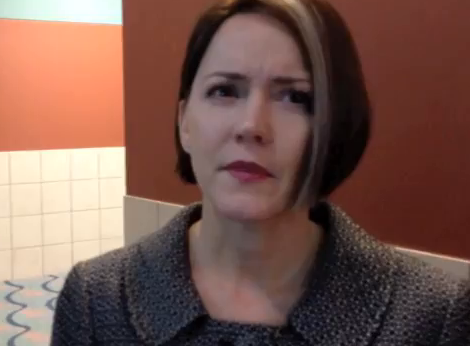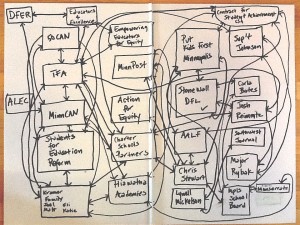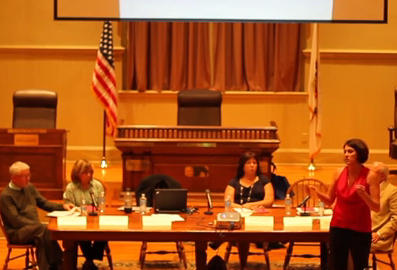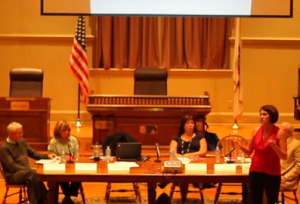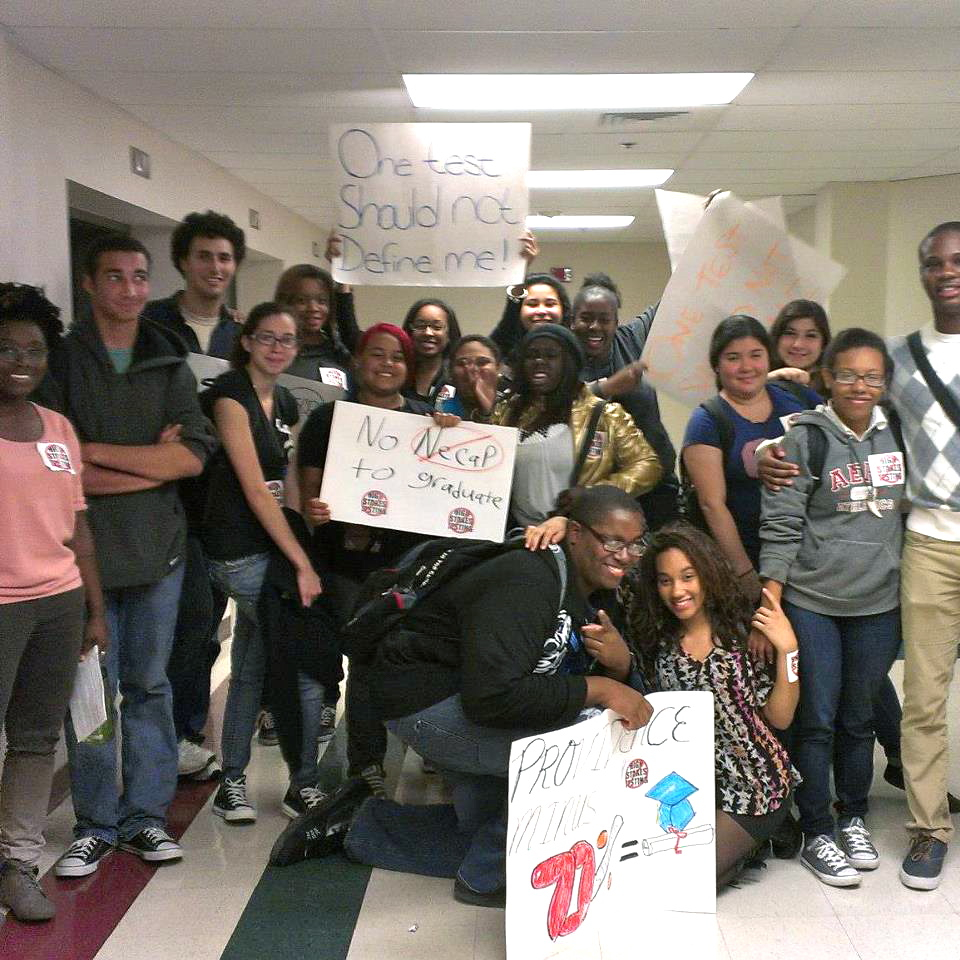What’s likely to happen to the number of students receiving diplomas in Rhode Island at the end of this year?
Even after RIDE’s release of the latest NECAP results, it’s hard to accurately predict the impact of the standardized test requirement for graduation. Historically, we know that over the past four years the percentage has averaged out to slightly less than 92%, with approximately 1,000 seniors dropping out, opting for the GED, or transferring out of state.
But last year 4,159 students failed the NECAP and needed to retake the test to try to get a passing score. Of those students, RIDE reported 1,370 succeeded. Of the remaining 2,789, RIDE reports 154 dropped out. Regardless of these drop-outs, the fall enrollment count for this fall was 10,403, which seems in line with previous fall enrollments. In other words, as RIDE stated, the impact of the testing requirement on grade 11 drop-outs was not much.
If 4,195 students failed last year and 1,370 passed this year, our best guess is that 2,789 students in this class of seniors will not graduate with diplomas. For the sake of simplicity, this number assumes that all students dropping out, moving away from the state, or getting a GED are also students who failed the NECAP on their first try.
This is what that number does to the number and percentage of seniors graduating with diplomas: it decimates them.
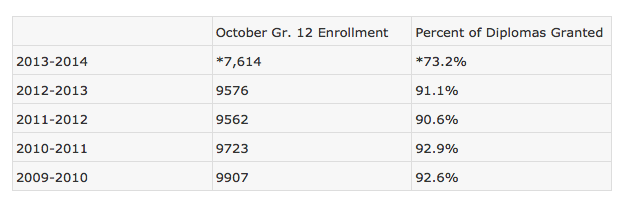 [* Estimates based on number of students from the class of 2014 failing NECAP for the second time (2,789)]
[* Estimates based on number of students from the class of 2014 failing NECAP for the second time (2,789)]
Of course, 2,789 is the number before students begin to take the numerous alternative tests available, including the “min-NECAP”, and activate whatever waiver process their districts have in place to compensate for a failing NECAP score.
Hopefully, the 2,789 number will go down. If districts adopt liberal waiver policies, if could go down considerably.
But from this point on, the picture for these 2,789 students looks like a form of mayhem—they will be searching out opportunities to take a variety of tests, only one of which (SAT math) has its cut-score connected to the NECAP by more than air-thin logic. Or they will be trying to get admitted into a “non-open enrollment college”. Or they will be navigating whatever waiver requirements their district has put in place, which requires them to assemble whatever evidence of academic achievement their district has decided to accept.
It’s not a pretty picture for students from here on, and that’s the larger point.
Students who come from organized, well-resourced districts and have organized, well-resourced parents will do best of all and from there on it’s downhill until the devil take the hindmost.
This is as vivid a picture as possible of why the testing policy fails the mission of our education ideal—to educate all children well and to provide an education that will be the entrée to a productive life and career. Our education system has slowly been moving in this direction by including more and more academically vulnerable students into our enrollments–students with learning disabilities, students who do not speak or write English well, students from families with little of no literacy background.
These students pose a challenge to our traditionally structured education system.
They require especially skilled teachers, special lesson plans, more time, smaller classes and, in general, more resources. But, with more adequate and equitable funding, better teacher professional development, and innovative programming, we have slowly been learning how to help these students be more successful in our schools.
The testing requirement threatens to erode this progress. The scenario most likely to emerge in the next few months–as students try to save themselves–will probably be what happened on the Titanic—most of First Class is saved and most of the others go down with the ship. The irony, and it’s bitter, is that all this is being done in the name for what’s good for kids. Anyone who speaks out against it is branded as being against high standards.
This is truly an Orwellian twist, where what is disastrous for many kids is labeled as good for all kids and where condemning some kids is the prerequisite for saving the rest. And we know who those sacrifices will be, our already vulnerable kids. Go get the low hanging fruit.





 Mining a tradition that stretches back to Athenian democracy and probably much earlier, members of the Providence Student Union (PSU) engaged in political theater to protest the “the ill-conceived experiment” of “Rhode Island’s new high-stakes testing graduation requirement” yesterday in the State House rotunda.
Mining a tradition that stretches back to Athenian democracy and probably much earlier, members of the Providence Student Union (PSU) engaged in political theater to protest the “the ill-conceived experiment” of “Rhode Island’s new high-stakes testing graduation requirement” yesterday in the State House rotunda.



















 This month, Diane Ravitch gave a speech to the annual meeting of the Modern Language Association in which she laid out a comprehensive analysis of the Common Core. Ravitch gets a bad rap for being polemical, but this piece is far from a polemic – it’s a straightforward analysis from her perspective. (By the way, Ravitch’s speech was originally designed as a debate between Ravitch and David Coleman, the lead architect and cheerleader for the Common Core, but he backed out).
This month, Diane Ravitch gave a speech to the annual meeting of the Modern Language Association in which she laid out a comprehensive analysis of the Common Core. Ravitch gets a bad rap for being polemical, but this piece is far from a polemic – it’s a straightforward analysis from her perspective. (By the way, Ravitch’s speech was originally designed as a debate between Ravitch and David Coleman, the lead architect and cheerleader for the Common Core, but he backed out).




